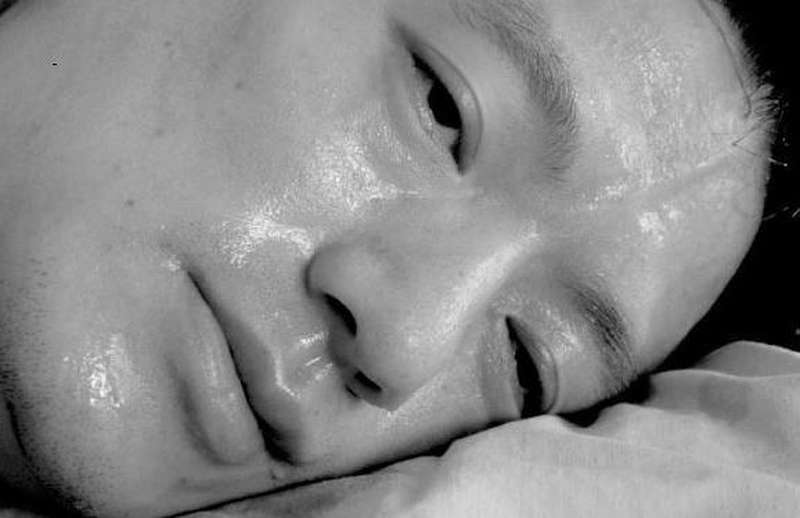Cancer is one of the deadliest illnesses and its death rate is 40% higher this year.
Since there are no specific symptoms of cancer, it is important that you limit your risk factor and undergo necessary screening process.
It is important that we are aware of potential symptoms, especially for those people with risk factors (for example, genetics, smokers, high exposure in the UV rays of sun, heavy drinkers).
Any warning signs should never be ignored and you should seek immediate medical care for early diagnosis and successful treatment rate.
15 Symptoms and Signs of a Cancer
Cough that is persistent
Do you have a nagging cough that hasn't been gone for more than a month?
Is there a presence of blood in the mucus when you cough?
Never take these signs for granted. Though these could usually be a symptom of a simple infection such as sinusitis or bronchitis, they can also be a symptom of head, lung or neck cancer.
Bowel habits change
When there are changes in our bowel habits, it is commonly linked to your liquid intake or diet movement.
In cases of colon cancer though, doctors often see stools that are pencil-thin on their patients. Some cancer patients also suffer from continuous diarrhea.
Some patients feel a constant urge of bowel movement that does not disappear even when they had just their bowel moved.
If you feel any of these abnormal bowel habits that last for more than a few days, consult your health specialist for a check-up and evaluation.
Presence of blood in the stool
If there is a presence of blood in your stool, you should never dismiss it as it could be one of the symptoms of cancer.
Though rectal bleeding is often caused by hemorrhoids, you should still have your entire intestinal tract checked by your doctor even when you have hemorrhoids. Though it is common with most people, hemorrhoids may still exist with cancer. Colonoscopy or X-ray studies may be recommended.
Studies may not be needed though if there is an obvious reason of rectal bleeding such as recurrent ulcers.
Unexplained low blood count
Anemia, a condition in which red blood cells are fewer than expected, should always be checked by your doctor.
The number one cause of iron deficiency anemia is blood loss. However, many cancer causes anemia, and iron deficiency anemia is mostly caused by colon cancer.
If there is an unexplained drop in your red blood cells, consult your physician for some tests.
Lump or discharge in the breast
Though most breast lumps are often caused by cysts or fibro adenomas which are noncancerous tumors, they are still needed to be investigated.
Discharges from the breast are not uncommon, but you should be alarmed if there is blood in the discharge or if it is only from one nipple as they may be a sign of cancer.
Your doctor may request a breast ultrasound, MRI, or a biopsy. In addition, it is recommended that all women must perform breast self-examination every month.
Presence of lumps in the testicles
90% of men that have been diagnosed with testicle cancer have uncomfortable or painless lump in their testicles while others have testicles that are enlarged.
Any lump, whether caused by swollen veins or infections, must be tested.
All men are advised to self-examine their testicles every month.
Change in urine habit
Never dismiss urinary symptoms such as small amounts of urine, frequent urination, slow flow of urine or any change in your bladder function.
While these symptoms are often associated with urinary tract infection in women and enlarged prostate gland for men, these can also be symptoms of cancer, particularly prostate or bladder cancer.
Presence of blood in the urine
While blood in the urine is often caused by kidney stones, urinary infection or other causes, it should never be dismissed as it may be a symptom of kidney or bladder cancer.
If you see a presence of blood in your urine, you should have it checked immediately.
Hoarseness of the voice
A simple allergy or respiratory tract infection can sometimes cause hoarseness, but if you've been experiencing hoarseness of your voice for more than four weeks, you should have it evaluated. It could be a first sign of throat cancer.
Swollen glands or persistent lumps
Most lumps are commonly harmless, however, if you have swollen glands or lumps for more than three weeks, it should be evaluated by your doctor.
Changes in a mole or wart
If you have moles that are multicolored and have edges that are irregular, it may be cancerous. Moles that bleed or seem to be enlarging need to be evaluated as it’s one of the symptoms of cancer.
If you have suspicious mole, your doctor will have it examined for skin cancer.
Difficulty swallowing or indigestion
Difficulty in swallowing is common, especially amongst elders. Nevertheless, it needs to be checked up to ensure that you have proper nutrition. Patients diagnosed with cancer of the esophagus had complained of difficulty in swallowing, especially of solid foods.
If you have been experiencing chronic heartburn that does not go away despite taking over-the-counter medications for antacid, you should have an endoscopy in your upper GI. Cancer of the esophagus, which displays this symptom, has higher success if it is diagnosed and treated early.
Unusual discharge or bleeding in the vagina
You should seek medical attention if you have:
Bleeding between periods or after intercourse
Bleeding that lasts for a few days and comes back
Postmenopausal bleeding
These could be an early tell-tale of cancer of the uterus.
Sores that don't heal
Most sores heal quickly. If you have sores that fail to heal, especially if they are in your gums, mouth, tonsils or tongue, this could be a sign that you may have cancer. Raise these concerns with your doctor.
Fever, night sweats, or unexpected weight loss
While these symptoms are often caused by various infections, different types of cancer also exhibit them.
We should always look out for any of these symptoms and visit our doctor right away should we exhibit one or two of these. With early detection and proper treatment and medication, you will have a higher risk of recovery.



View All Comments /Add Comment